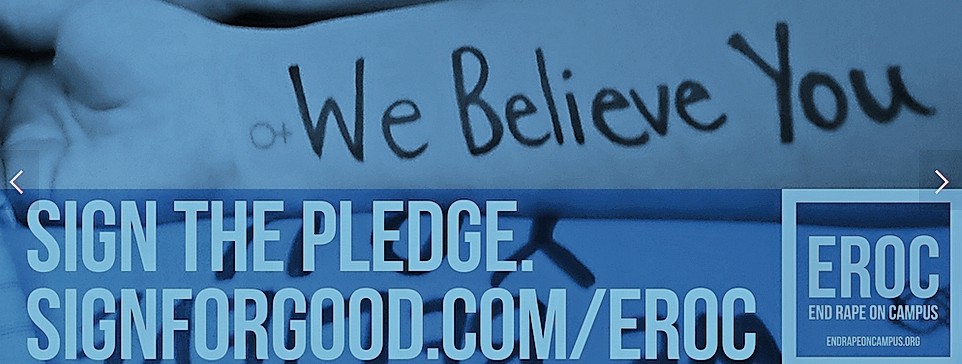Addressing sexual assault at college
Panel discussion at Hewlett High school on March 30
A 2015 survey conducted by the Association of American Universities of 150,000 college students from 27 U.S. universities, found that 23 percent of women said they have experienced unwanted sexual contact — ranging from kissing to touching to rape — done by force or the threat of physical violence, and in some cases while they were incapacitated due to alcohol or drug use.
With nearly a quarter of young women enduring sexual assault during their college years, the Peninsula and South Shore chapters of the National Council of Jewish Women (NCJW) have organized an free interactive panel discussion about the topic on Wednesday, March 30 from 7 to 9 p.m. at Hewlett High School at 60 Everit Ave. in Hewlett.
“We really wanted to reach students before they get to college, we wanted to help students and parents so they learn what’s happening and to be proactive,” said Jackie Fetner, chairwoman of NCJW-Long Island Sections, who is serving as the event chair.
Fetner said that her professional experience as a speech pathologist makes her very goal oriented. When helping to organize the panel discussion her first questions were what are our goals and whom should we have. “We should have a survivor, we should have someone with a legal background and someone from a college,” she said.
What Fetner called their “dream team” will include Sofie Karasek, a sexual assault survivor who co-founded End Rape on Campus and has been instrumental in working to ensure that colleges are more accountable, when it comes to investigating allegations of sexual assault on their campuses. Kyle Rose-Louder, a Nassau County assistant district attorney and chief of the Special Victims Bureau and Lara Nochomovitz, the Title IX coordinator at Hofstra University. WABC-TV news reporter N.J. Burkett will moderate.
Karasek, who is also one of the subjects of “The Hunting Ground” a documentary about the incidents of sexual assault on college campuses, said her message to young women who are assaulted is filled with empathy. “We want survivors to know we believe them, we support them, and it’s not their fault if they are sexually assaulted,” she said. “We don’t say, ‘don’t go outside, don’t socialize,’ we want people to live their lives and it’s only the fault of the perpetrator.”
One of the more pervasive existing myths about sexual assault, Karasek said is that it is more likely to be a person the victim knows, than a stranger. Another myth, she said, is that victims, especially college students, think they should only report the incident if they were threatened with a weapon.
She said that a series of U.S. Supreme Court decisions have created an environment where universities are less likely to encourage reporting of sexual assaults since they could be held liable for the crime in a civil lawsuit. “No school wants to ne known as the ‘rape school,’” Karasek said. “There is a lack of resources committed to this, but hopefully with more public knowledge we can address this issue.”
More education is needed earlier in children’s lives, she said. Karasek noted that some countries, such as Australia and the Netherlands, have educational programs that teach young kids about boundaries concerning respect for other people.
Dr. Theodore Fulton, principal of the host school, said that increasing student awareness about sexual assault is vital. “It is paramount we provide opportunities to educate our learning community and reinforce preventions efforts,” he said.

 41.0°,
Fair
41.0°,
Fair 




